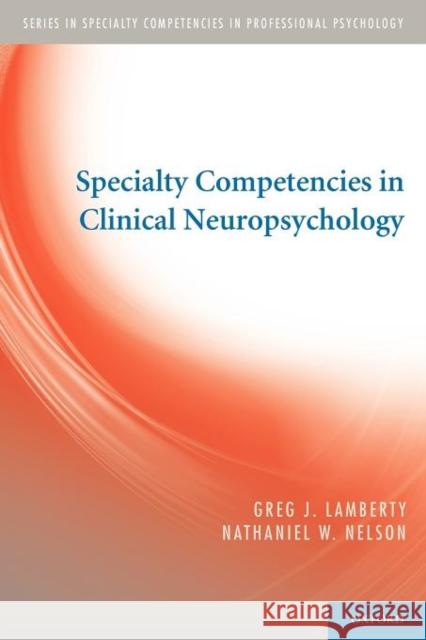Specialty Competencies in Clinical Neuropsychology » książka
topmenu
Specialty Competencies in Clinical Neuropsychology
ISBN-13: 9780195387445 / Angielski / Miękka / 2012 / 208 str.
Whereas the roots of the clinical neuropsychology specialty can be found in fields over a century old, it has grown very rapidly during the past thirty years. Doctoral programs in clinical psychology and predoctoral internship programs have developed concentrations in this area, as the need for postdoctoral training in this specialty has become increasingly acknowledged. Typically thought of as the clinical and empirical study of brain-behavior relationships, clinical neuropsychology is firmly grounded in psychology, behavioral neurology, psychiatry, psychometrics, and statistics.
In this volume, Drs. Lamberty and Nelson provide a comprehensive overview of the foundational and functional competencies related to the broad field of clinical neuropsychology. The authors distill not only the most important dimensions of the current science and practice, but also delineate important future directions and challenges. Anyone interested in obtaining an extensive survey of the extant literature related to this specialty, as well as insider knowledge on important professional issues, will find this volume to be an invaluable resource. Series in Specialty Competencies in Professional Psychology Series Editors Arthur M. Nezu and Christine Maguth Nezu As the field of psychology continues to grow and new specialty areas emerge and achieve recognition, it has become increasingly important to define the standards of professional specialty practice. Developed and conceived in response to this need for practical guidelines, this series presents methods, strategies, and techniques for conducting day-to-day practice in any given psychology specialty. The topical volumes address best practices across the functional and foundational competencies that characterize the various psychology specialties, including clinical psychology, cognitive and behavioral psychology, school psychology, geropsychology, forensic psychology, clinical neuropsychology, couples and family psychology, and more. Functional competencies include common practice activities like assessment and intervention, while foundational competencies represent core knowledge areas such as ethical and legal issues, cultural diversity, and professional identification. In addition to describing these competencies, each volume provides a definition, description, and development timeline of a particular specialty, including its essential and characteristic pattern of activities, as well as its distinctive and unique features. Written by recognized experts in their respective fields, volumes are comprehensive, up-to-date, and accessible. These volumes offer invaluable guidance to not only practicing mental health professionals, but those training for specialty practice as well.










